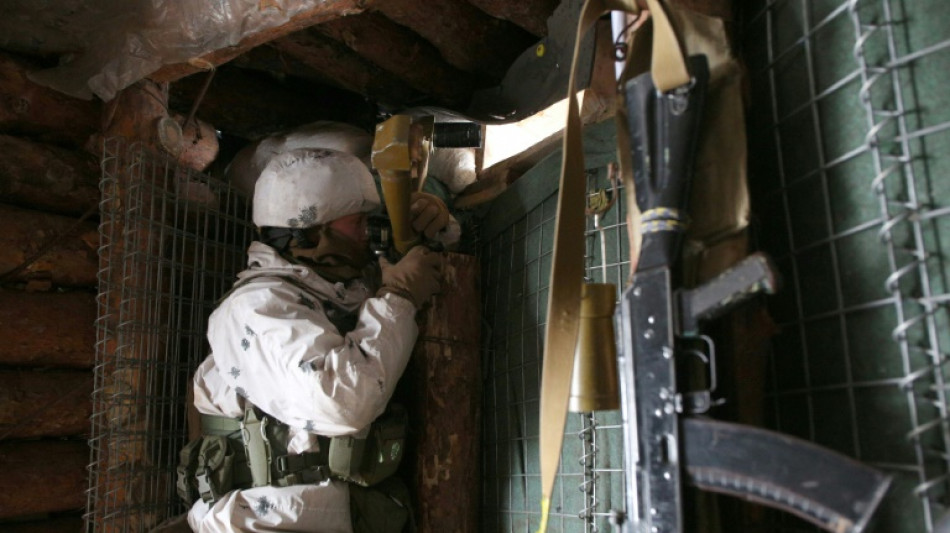
-
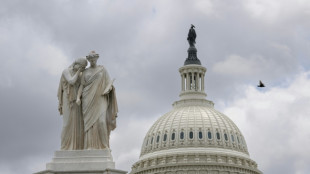 What do some researchers call disinformation? Anything but disinformation
What do some researchers call disinformation? Anything but disinformation
-
Jimmy Kimmel show to return Tuesday
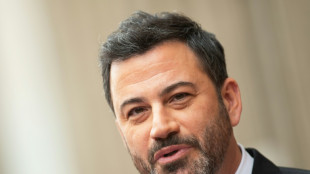
-
 Unification Church leader arrested in South Korea
Unification Church leader arrested in South Korea
-
Singapore firm rejects $1bn Sri Lankan pollution damages
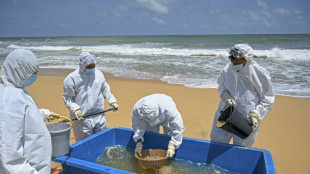
-
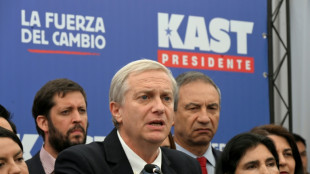 Chile presidential contender vows to deport 'all' undocumented migrants
Chile presidential contender vows to deport 'all' undocumented migrants
-
China may strengthen climate role amid US fossil fuel push
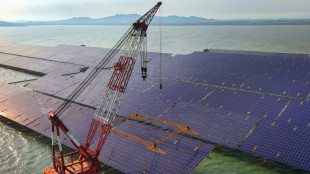
-
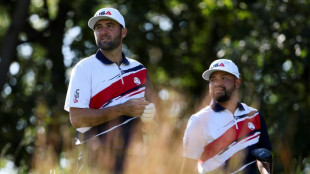 Ryder Cup captains play upon emotions as practice begins
Ryder Cup captains play upon emotions as practice begins
-
Bradley defends US Ryder Cup player payments as charity boost
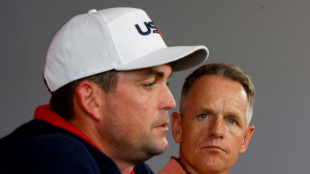
-
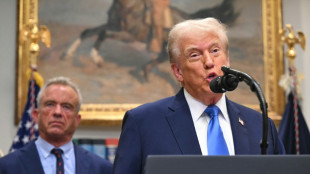 Trump ties autism risk to Tylenol as scientists urge caution
Trump ties autism risk to Tylenol as scientists urge caution
-
Dembele beats Yamal to Ballon d'Or as Bonmati retains women's award
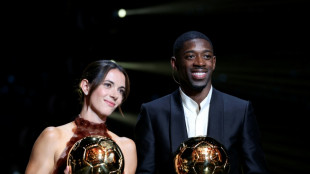
-
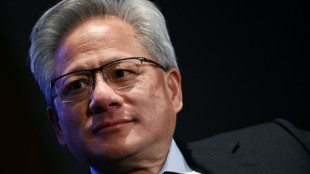 Strength in Nvidia, Apple helps lift US equities to new records
Strength in Nvidia, Apple helps lift US equities to new records
-
Man City 'keeper Donnarumma says would have stayed at PSG
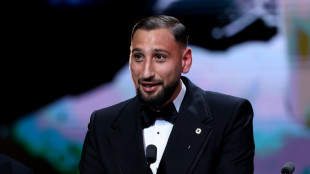
-
 49ers ace Bosa to miss season after knee injury: reports
49ers ace Bosa to miss season after knee injury: reports
-
Canada wildlife decline 'most severe' in decades: WWF
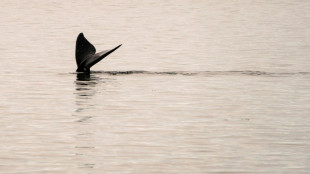
-
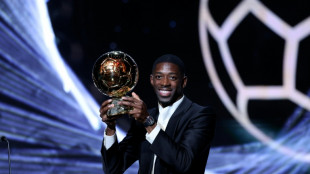 PSG star Dembele wins men's Ballon d'Or
PSG star Dembele wins men's Ballon d'Or
-
Napoli beat battling Pisa to maintain perfect Serie A start

-
 Spain's Aitana Bonmati wins Women's Ballon d'Or
Spain's Aitana Bonmati wins Women's Ballon d'Or
-
Jimmy Kimmel show to return Tuesday: Disney
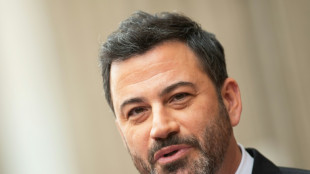
-
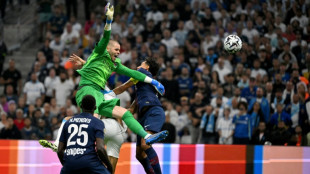 Marseille inflict first defeat of season on PSG in Ligue 1
Marseille inflict first defeat of season on PSG in Ligue 1
-
White House promises US-controlled TikTok algorithm
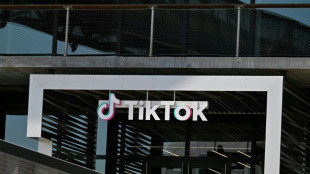
-
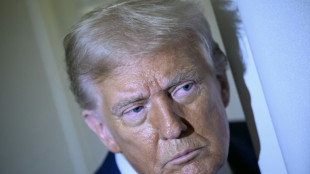 Trump expected to tie autism risk to Tylenol as scientists urge caution
Trump expected to tie autism risk to Tylenol as scientists urge caution
-
Macron recognizes Palestinian state at landmark UN summit
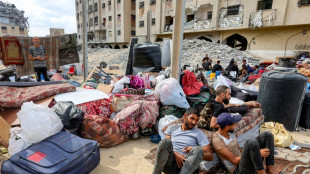
-
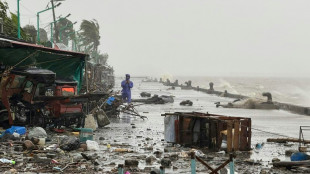 Hong Kong prepares for 'serious threat' from Super Typhoon Ragasa
Hong Kong prepares for 'serious threat' from Super Typhoon Ragasa
-
S. Korea court issues arrest warrant for Unification Church leader: Yonhap

-
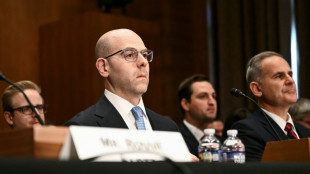 New US Fed governor says rates should be around 'mid-2%'
New US Fed governor says rates should be around 'mid-2%'
-
14 killed as rival Ecuadoran inmates fight with guns, explosives
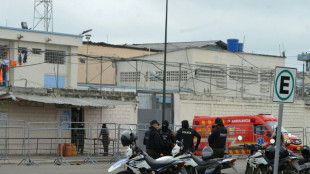
-
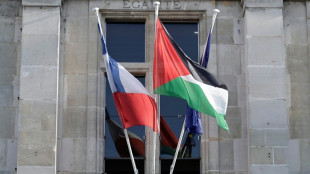 Dozens of French towns flout government warning to fly Palestinian flag
Dozens of French towns flout government warning to fly Palestinian flag
-
Nvidia to invest up to $100 bn in OpenAI data centers

-
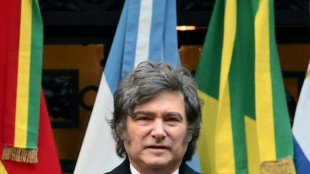 US mulls economic lifeline for ally Argentina
US mulls economic lifeline for ally Argentina
-
France to recognize Palestinian state at contentious UN
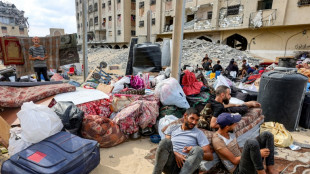
-
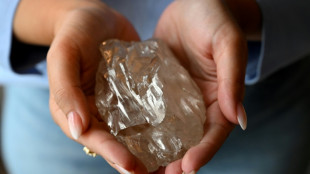 Museum or sheikh? World's second largest diamond awaits home
Museum or sheikh? World's second largest diamond awaits home
-
UK charities axe Prince Andrew's ex-wife over Epstein email
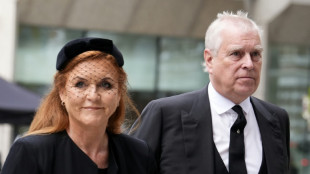
-
 Google fights breakup of ad tech business in US court
Google fights breakup of ad tech business in US court
-
US pleads for new beefed-up multi-national force in Haiti
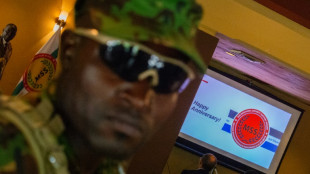
-
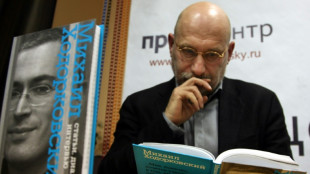 'Don't repeat our mistakes' - Russian writer Akunin warns against creeping repression
'Don't repeat our mistakes' - Russian writer Akunin warns against creeping repression
-
Stocks steady ahead of key US inflation data
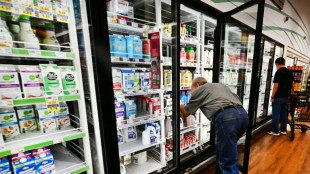
-
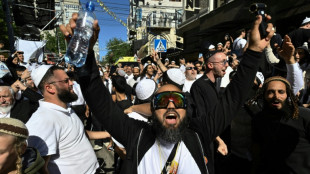 Jews flock to Ukraine for New Year pilgrimage despite travel warning
Jews flock to Ukraine for New Year pilgrimage despite travel warning
-
Trump autism 'announcement' expected Monday
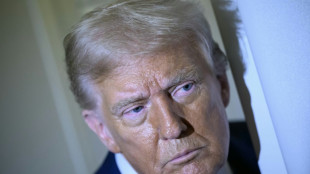
-
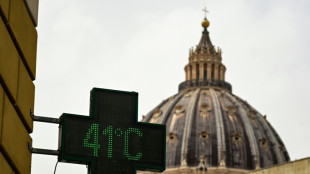 Over 60,000 Europeans died from heat during 2024 summer: study
Over 60,000 Europeans died from heat during 2024 summer: study
-
Clashes as tens of thousands join pro-Palestinian demos in Italy
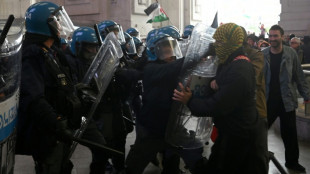
-
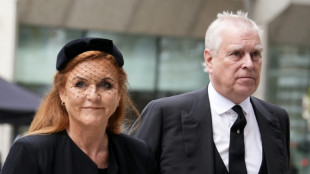 UK charity axes Prince Andrew's ex-wife over Epstein email
UK charity axes Prince Andrew's ex-wife over Epstein email
-
France, others to recognize Palestinian state at UN
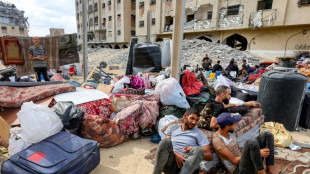
-
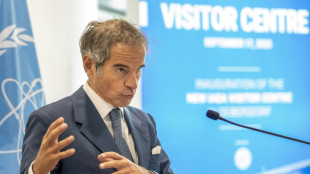 IAEA says Iran nuclear diplomacy at a 'difficult juncture'
IAEA says Iran nuclear diplomacy at a 'difficult juncture'
-
Merz tasks banker with luring investment to Germany
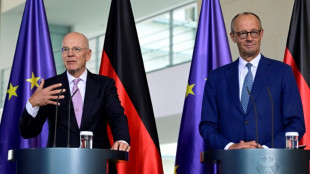
-
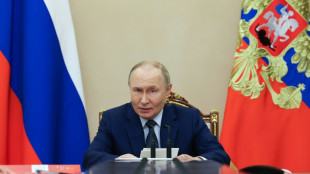 Russia offers to extend nuclear arms limits with US by one year
Russia offers to extend nuclear arms limits with US by one year
-
Stocks turn lower ahead of key US inflation data
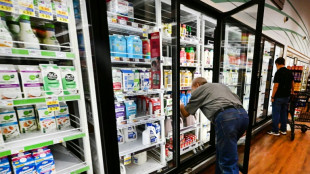
-
 Gavi to undergo knee operation on meniscus injury: Barcelona
Gavi to undergo knee operation on meniscus injury: Barcelona
-
Frenchman denies killing wife in case that captivated France
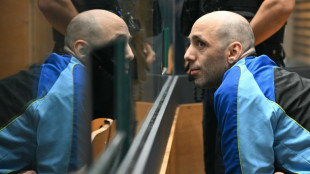
-
 Bavuma out of Test series in Pakistan as De Kock back for ODIs
Bavuma out of Test series in Pakistan as De Kock back for ODIs
-
Bavuma out of Test series as De Kock back for white-ball games


US ratchets up sanctions pressure against Moscow
The United States on Tuesday warned Moscow of damaging sanctions, including high-tech export curbs, as Russian combat troops massing around Ukraine launched new exercises.
Unveiling ways that Western allies intend to inflict "massive consequences" on Russia's economy in the event of a Ukraine invasion, a senior US official also warned Moscow against using energy exports as a weapon.
"We are prepared to implement sanctions with massive consequences" that go far beyond previous measures implemented in 2014 after Russia invaded Ukraine's Crimea region, the official said.
"The gradualism of the past is out," the official told reporters, speaking on condition of anonymity.
British Prime Minister Boris Johnson echoed the threat, saying sanctions would be "heavier than anything we've ever done before."
New measures would include restrictions on exports of high-tech US equipment in the artificial intelligence, quantum computing and aerospace sectors, the US official said.
"What we're talking about are sophisticated technologies that we design and produce" and cutting them off would hit President Vladimir Putin's "strategic ambitions to industrialize his economy quite hard," the official told reporters.
- New Russian military exercises -
A day after Washington said it was putting 8,500 US troops on alert for possible deployment to bolster NATO forces in Europe, the Russian military announced it was conducting new drills involving 6,000 troops near Ukraine and within the Crimea region.
The drills included firing exercises with fighter jets, bombers, anti-aircraft systems and ships from the Black Sea and Caspian fleets, the defense ministry said.
According to Western officials, the Kremlin has already deployed more than 100,000 troops on Ukraine's borders, with reinforcements arriving from all over Russia.
The United States and its EU allies accuse Russia of seeking to upend European stability by threatening invasion of Ukraine, a former Soviet republic striving to join NATO and other Western institutions.
"Russia has placed a gun to Ukraine's head," Johnson told parliament.
Moscow denies plans to invade the country, where in addition to seizing Crimea it backs separatist forces controling a swath of eastern Ukraine.
Russia blames the West for the tension and has put forward a list of demands, including a guarantee that Ukraine never join NATO and that NATO forces already in the former Soviet bloc pull back.
- Energy threats -
Addressing concerns in Europe that Russia could curb energy exports to heavily dependent Europe, the senior US official said Russia would also be hurting itself.
"If Russia decides to weaponize its supply of natural gas or crude oil, it wouldn't be without consequences to the Russian economy," a senior US official told reporters.
Although the European Union sources about 40 percent of its supply from Russia, Moscow also relies heavily on sales of energy for its national budget, meaning "it's an interdependency," the official said.
The United States and its European allies are scouring global markets for alternative energy sources to mitigate fallout from any conflict, as Europe already finds itself struggling with soaring mid-winter energy prices.
- Divisions in the West -
Negotiations in European cities this month have failed to ease tensions, though US Secretary of State Antony Blinken and Russian Foreign Minister Sergei Lavrov agreed at a meeting in Geneva on Friday to keep talking.
The French government said Russian and Ukrainian officials would meet, along with French and German counterparts, in Paris on Wednesday.
Washington has promised to provide written answers to Moscow's demands this week, while already making clear that it rejects giving Russia a veto on Ukraine's aspirations to join NATO.
After a call with European leaders on Monday, US President Joe Biden said there was "total unanimity" on how to deal with Russia.
But the crisis has laid bare divisions in the West.
The new government in EU economic powerhouse Germany in particular has faced criticism from Kyiv over its refusal to send defensive weapons to Ukraine, as well as hesitating over one of the harshest economic sanctions under discussion -- cutting Moscow from the global SWIFT payments system.
- 'False flag' jitters -
Ukraine's military is heavily outgunned by Russia and no Western country is considering deploying troops to help repel any attack by Moscow.
However, the United States has stepped up deliveries of weapons, with Blinken on a visit to Kyiv last week confirming another $200 million in aid. A shipment arrived on Saturday and another batch was due Tuesday.
The United States warns that Moscow could manufacture a "false flag" incident in Ukraine to justify an attack of its own.
Russia denies this, but Ukraine claimed Tuesday it had dismantled a group of saboteurs "coordinated by Russian special services" who had planned a "series of armed attacks" aimed at destabilizing the country.
burs-sms/mlm
G.Stevens--AMWN